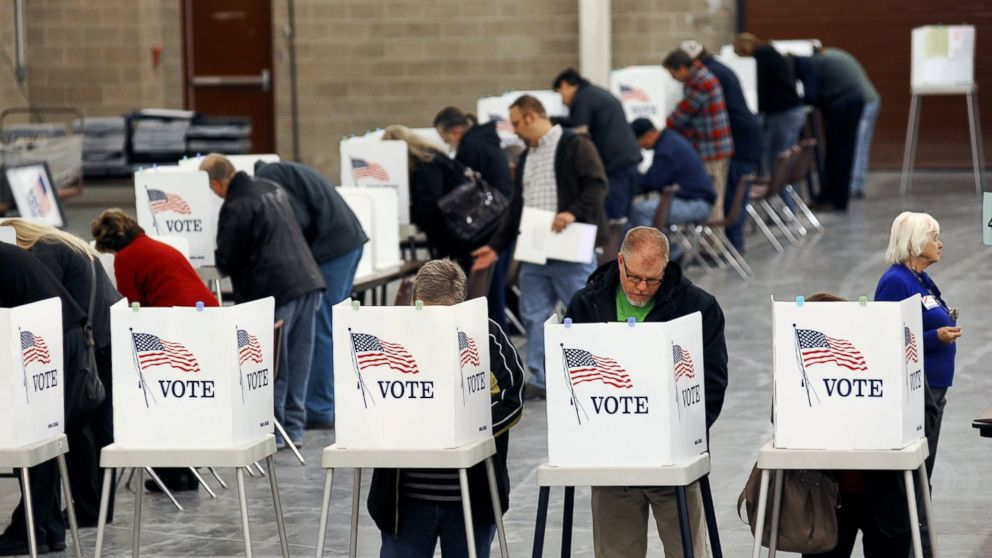Don't Let the Past Block You From Seeing the Future
The past gives us clues to the future in the 2016 presidential campaign.

— -- So often in life we neglect to look backward to put our present in context and our future in sight. Much of the stories that get repeated, whether in our own mind or by others, arise from myths believed long ago, or a truth forgotten because of either fear or it doesn’t fit into today’s storyline. Yes, this happens frequently in our most personal relationships where we let a forgotten or forbidden lesson from times gone by seriously hamper our ability to see and grow today.
And of course if it plays out personally, this will all play out as well in politics, which is merely personal dynamics in public. Let me touch on five areas of this unfolding as we move into the summer of churning in the presidential campaign.
- As I have stated, the political landscape is the most important element of any presidential campaign. WE spend far too much time delving into, discussing, and debating tactics, and not enough understanding the political environment of the moment our country is in, and what that might tell us of who will emerge. In 1992, while Bill Clinton and his campaign performed well, the political environment was such (incumbent poor job approval, low right direction of country) that a Democrat was going to win regardless. The same was true in 2008. The landscape ultimately defined President Obama’s victory in the general election, much more so than brilliant strategy and tactics. Today the incumbent President has a low approval rating and the majority of voters think we are on the wrong track. This can change in next 18 months but it makes it tough for Hillary Clinton unless the GOP nominates a very polarizing figure (which is definitely possible).
- There seems to be constant commentary about the size of the GOP field and how there doesn’t seem to be a talented politician in the large bunch. Pundits think it is an "Ocean’s 11" without a George Clooney. Let’s keep in mind Democrats had a double-digit list of candidates in 1992 and 2008 which did not seem to hamper their election prospects. And Bill Clinton, while held up today as the most talented politician in a generation, gave an awful convention speech in 1988 and was not seen in 1991 and early ’92 in the way we see him today. This election process and gauntlet, like the ups and downs of life, has a tendency to show the greatness and weaknesses of leaders in ways we can’t foresee at the moment.
- The myth has grown up and rooted deeply that governors (or former governors) make better presidents than legislators and others who haven’t held gubernatorial office. History doesn’t bear this out. Take a look at the Presidents in the last half-century -- being a governor is no predictor of success in the White House or the ability to lead. Presidents Carter and George W. Bush were both governors, and their presidencies today are ranked in the bottom tier. And contrast that with Presidents Kennedy and Nixon who, regardless of your views, were not held back in governing the country because they were legislators.
- Looking back at previous elections we see that the vulnerabilities of one candidate can actually hurt a candidate with similar vulnerabilities on the opposite side. In 2008 the Republican nominee John McCain was viewed as “of the past” and not an agent of change, and this actually highlighted the same problems in Hillary Clinton – allowing a next generation candidate to emerge – Barack Obama. Today, Hillary’s vulnerabilities being “of the past”, tied to a famous name, and a creature of the establishment hurts Jeb Bush in the GOP primary. It showcases Jeb’s similar vulnerabilities, and it is fascinating to note that Hillary hurts Jeb in his own nomination contest.
- Once again let me reiterate that message (coupled with momentum) matters way more than money. And if one looks at unfolding nomination processes in the past, money always follows momentum, and momentum can always roll over money. But for many of his own mistakes, McCain could have beaten Bush in 2000 having been outspent 5 to 1. Time and time again message rules over money. Today look for the candidate who spends the most time converting a meaningful message that resonates into momentum, and not the candidate spending their time raising money.
Let us all try to see the truths of our past without fear, so we can engage in the present in a clear way, and enable us to bring the future near.
There you have it.
Matthew Dowd, founder of ListenTo.Us, is an ABC News analyst and special correspondent. Opinions expressed in this column do not reflect the views of ABC News.